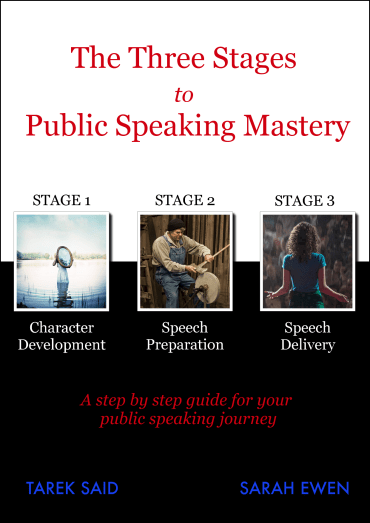7 STEPS TO PICK A PERFECT SPEECH TOPIC
Panic – the pressure is on! You are staring at a blank sheet of paper or a blank document on your computer, your stomach is churning due to the looming speech delivery date and you just don’t know what to talk about!
This is the reality for so many budding and even experienced speakers. There is a limited time to prepare a speech and yet a disproportionate chunk of this time gets absorbed in trying to nail down the best speech topic. This then has a negative knock on effect on writing the speech and the quality of practice achievable given the limited time left.
Before writing any speech selecting the right speech topic can be a painful, drawn out and tedious process. The good news is that it does not have to be! With our Public Speaking for Life guide on how to select a speech topic you can narrow down the right speech topic for you without wasting time!
Regardless of the nature of the event, meeting or occasion you have volunteered or been forced to speak at, there are certain steps that you can take every time when selecting a topic.
Step 1: Identify the nature of the speaking event and purpose behind it
Finding out what the nature of the speaking event is and the primary purpose behind it can really help in narrowing down a topic which is relevant and fit for purpose. It may seem very obvious yet there are speakers who get caught out by preparing a speech they think is on a suitable topic only to find out moments before delivery that the speech topic is not going to hit the mark. Don’t make a wild assumption and know this basic information from the outset. It can save embarrassment on stage and can really help narrow down your search for the right topic.
Step 2: Know your audience
You may not know a single sole when you stand up in front of a particular audience but there are commonalities between the individuals that make up any audience. This can be as simple as the one reason why they are all sitting in the same room listening to you. Common characteristics can include but are not limited to – age, gender, beliefs, seniority, education, hobbies, experience, ethnicity and employment. Being aware of the commonalities of your audience can assist in selecting a topic that is relevant.
Step 3: Think of your personal interests, knowledge and experiences
Here comes the fun part! It is now all about you as the speaker. Bearing in mind the nature of the speaking event and your audience, what relevant topics are of personal interest to you? As a speaker if you are genuinely interested in your speech topic it makes researching, writing and delivering it so much more enjoyable. What topics do you already have knowledge on and/or have you had experiences that your audience can learn from? During this step the brainstorming is kicking in and the ideas are starting to bob up to the surface.
Step 4: Identify any relevant latest news
Picking the right topic means it needs to be relevant. Relevance means it needs to be current. Has there has been an explosion of media on a particular topic that is of interest to both you and your audience? Doing some high level research at this point can assist greatly in identifying relevant topics that are at the forefront of the minds of those in the audience and that you find interesting. During this research process it could be that you may not identify an overarching topic and you may simple stumble over supporting facts/stories/ ideas that assist in driving the topic selection process.
Step 5: Brainstorm all possible ideas
With your think tank full of a range of ideas it is time now to brainstorm and document all your ideas no matter how wild or ridiculous any one of them may seem. Documenting all your topic ideas is powerful in ensuring all possibilities have been considered. It may be helpful at this stage to bounce your ideas off somebody else as talking about them can often lead to even more topic ideas that you may otherwise not identify. There is no hard or fast rule as to how many topic ideas you should have but your limitation in most instances is usually time.
Step 6: Make a short list of possible topics
Here comes crunch time. Now it is time to review the list and narrow it down to three topic finalists. Consider all the factors in the steps above and be ruthless. Now is the time for harsh elimination. Which of your ideas are the most relevant to the speaking event? Which ideas are likely to be most appealing to your audience? Which topic do you know most about and find interesting? Are there any hot topics that are bound to be a crowd pleaser? At this stage you need to go with your gut instinct and not spend hours debating.
Step 7: Make a decision and commit to it
A decision now must be made and then you need to stick to it. When you review your short list of finalists there may be one topic that just leaps out at you, you find yourself naturally bonding with it and the speech is beginning to write itself in your mind. When this happens you have hit the jack pot and the speech writing process can commence. However, if you are struggling to make a nail biting decision, one recommendation is to draft a high level speech outline bullet point style for each of the short listed topics. When identifying the key points in the body of each speech outline, the topic that is the easiest and the quickest to craft is most likely the one you know most about and find the most interesting! Bingo – speech topic has been selected.
With your speech topic identified it is time now to dive into the speech writing process.


